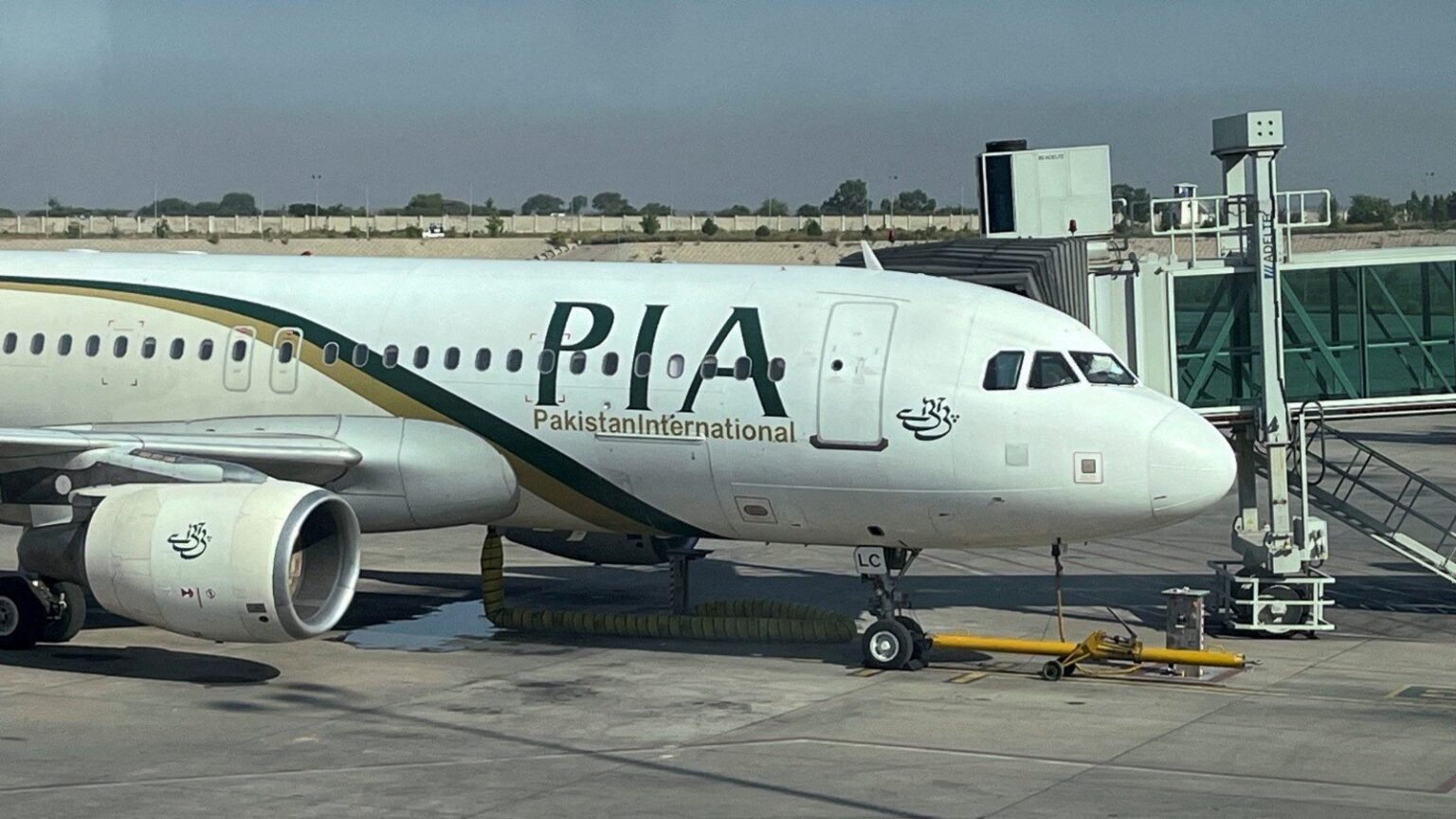PIA Bidding Process
The Privatisation Commission of Pakistan has decided to reinitiate the bidding process for Pakistan International Airlines (PIA) after receiving an underwhelming bid of Rs10 billion, which fell far short of the Rs85 billion minimum valuation set for the national carrier.
The decision marks a significant setback for the government’s ongoing efforts to offload the debt-ridden airline and raise much-needed funds as part of its reform agenda under a $7 billion International Monetary Fund (IMF) programme.
A second round of bidding is expected soon as Pakistan seeks to sell a stake of between 51% and 100% in PIA, with the goal of restructuring and revitalizing the financially struggling state-owned enterprise.
The initial bidding process, which commenced at 1:30 PM and concluded at 6:30 PM in Islamabad, saw the submission of just one bid, totaling Rs10 billion, by the Blue World City Consortium.
Despite earlier indications that six bidders had been pre-qualified to participate, five of the groups opted out at the last minute, leaving Blue World City as the sole participant.
The six shortlisted companies initially included Air Blue Limited, Arif Habib Corporation Limited, Fly Jinnah, YB Holdings Private, Pak Ethanol Private, and Blue World City. However, sources confirmed that only Blue World City met the deadline to submit final documents by Tuesday, making it the sole contender for PIA’s privatization.
The commission had hoped for a higher level of interest from potential buyers, but various concerns appear to have dissuaded other groups from participating.
Representatives from three companies that declined to bid cited apprehensions about the government’s ability to uphold long-term agreements, particularly given the country’s volatile political climate and the uncertainty of a new government.
One executive expressed worries about the lack of policy continuity, a concern amplified by the coalition government led by Prime Minister Shehbaz Sharif, which has struggled with internal political discord.
Additionally, potential bidders raised concerns about the government’s recent actions, including the cancellation of power purchase agreements with private companies earlier in the month, which have cast doubt on the government’s commitment to honoring contracts.
Changes in long-standing agreements with Independent Power Producers (IPPs), many of which were financed by foreign lenders, have contributed to a growing perception that doing business in Pakistan entails significant risk, even when sovereign guarantees are involved.
Beyond policy concerns, other factors dissuading potential investors include the unattractive terms of the deal, high taxes in the aviation sector, and PIA’s legacy issues, including its poor financial performance and tarnished reputation.
Saad Nazir, chairman of Blue World City, confirmed his group’s Rs10 billion bid but acknowledged the challenging environment surrounding the airline’s privatization.
The government’s previous hesitation to privatize PIA stems from the unpopularity of the move, particularly due to the likelihood of significant layoffs. However, with PIA continuing to bleed resources, the current administration sees its sale as a crucial step in addressing the country’s economic woes.
Before the bidding process, the Cabinet’s Privatization Committee, chaired by Deputy Prime Minister Ishaq Dar, approved the sale of 60% of PIA’s shares.
The committee also finalized the reference price for the airline’s privatization, setting the stage for the upcoming bidding round. Whether the government can attract a more competitive bidding pool in the next phase remains to be seen, as potential investors weigh the risks and rewards of acquiring the troubled national carrier.


